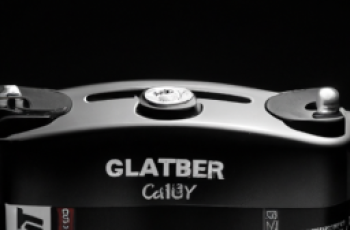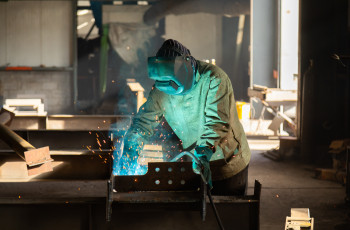Have you ever wondered how the power of a motor affects the performance of a bench grinder? In this article, we will explore the connection between motor power and the overall performance of a bench grinder. By understanding this relationship, you will be able to make informed decisions when purchasing a bench grinder for your workshop. So, let’s dig in and discover how motor power can greatly impact the performance of your bench grinder.

Importance of Motor Power
What is motor power?
Motor power refers to the amount of electrical power that the motor of a bench grinder can produce. It is typically measured in watts or horsepower (HP). Motor power plays a crucial role in determining the performance and efficiency of a bench grinder.
How does motor power affect bench grinder performance?
The motor power of a bench grinder directly impacts its performance in several ways. Firstly, a higher motor power allows the grinder to generate greater torque, which is the rotational force that powers the grinding wheel. This means that a grinder with a higher motor power can handle tougher materials and perform heavy-duty grinding tasks with ease.
Secondly, motor power influences the speed at which the grinding wheel rotates. A higher motor power generally results in a faster wheel speed, enabling the grinder to remove material more quickly. However, it is important to find the right balance between speed and power to ensure optimal performance and prevent overheating or damaging the grinding wheel.
Factors to consider when choosing motor power
When choosing the motor power for a bench grinder, there are several factors to consider. The intended use and workload of the grinder should be taken into account. If you plan on using the grinder for light-duty tasks or occasional home use, a lower motor power may be sufficient. On the other hand, if you require a bench grinder for heavy-duty industrial applications or continuous use, a higher motor power is recommended.
Additionally, the size of the grinding wheel and the type of material you will be working with should also be considered. Larger grinding wheels generally require more motor power to achieve optimal performance. It is essential to choose a motor power that can handle the specific requirements of your grinding tasks to ensure efficient and reliable operation.
Effect of Motor Speed
How does motor speed impact bench grinder performance?
Motor speed is another important factor that affects the performance of a bench grinder. Speed is typically measured in revolutions per minute (RPM) and determines how fast the grinding wheel rotates. The motor speed of a bench grinder has a direct impact on the material removal rate, the quality of the grinding finish, and the overall efficiency of the grinding process.
Understanding RPM (Revolutions Per Minute)
RPM refers to the number of complete revolutions the grinding wheel makes in one minute. Higher RPMs generally result in faster material removal and quicker grinding operations. However, it is important to note that higher RPMs may also generate more heat and increase the risk of overheating. Therefore, finding the right balance between speed and power is crucial to ensure optimal performance and prevent any safety hazards.
Finding the right balance between speed and power
In order to achieve the best performance and efficiency, it is essential to find the right balance between motor speed and power. A grinder with a higher motor speed can remove material quickly but may lack the necessary torque for heavy-duty tasks. On the other hand, a grinder with a lower motor speed may provide more torque but may require more time to complete the grinding process.
Finding the optimal balance between speed and power depends on the specific requirements of your grinding tasks. If precision and control are important, a lower motor speed may be preferable. However, if productivity and fast material removal are the primary concerns, a higher motor speed can help you achieve those goals. It is important to consider the nature of your grinding tasks and select a bench grinder with the appropriate motor speed and power to ensure optimal results.
Grinding Wheel Size and Compatibility
Choosing the appropriate grinding wheel size
When selecting a grinding wheel for your bench grinder, choosing the right size is crucial. Grinding wheels come in various sizes, typically ranging from 6 to 10 inches in diameter. The size of the grinding wheel you choose should depend on the specific applications and tasks you will be performing.
Matching grinding wheel size with motor power
The size of the grinding wheel should be matched appropriately with the motor power of the bench grinder. A larger grinding wheel generally requires more motor power to ensure efficient and effective grinding. If the motor power is insufficient for the size of the grinding wheel, the grinder may struggle to maintain an optimal grinding speed and may result in a poor grinding finish.
Effect of wheel size on grinding efficiency
The size of the grinding wheel directly affects the grinding efficiency of the bench grinder. A larger grinding wheel typically allows for more material removal and faster grinding. However, it is important to consider the balance between wheel size, motor power, and motor speed. If the grinding wheel is too large for the motor power and speed, it may cause unnecessary strain on the grinder and reduce overall grinding efficiency.
Choosing the right grinding wheel size is essential for achieving optimal performance and efficiency in your grinding tasks. It is recommended to consult the manufacturer’s guidelines and recommendations for selecting the appropriate grinding wheel size for your specific bench grinder.
Safety Features and Motor Power
The importance of safety features in bench grinders
Safety should always be a top priority when working with power tools such as bench grinders. Bench grinders can pose various safety risks, including eye injuries, burns, and accidents caused by flying debris. To mitigate these risks, bench grinders are equipped with various safety features.
How does motor power affect safety?
Motor power indirectly influences the safety of a bench grinder. A higher motor power allows the grinder to maintain a consistent and stable grinding speed, which reduces the likelihood of accidents caused by speed fluctuations. Additionally, a bench grinder with sufficient motor power can handle tough materials more effectively, reducing the risk of the grinding wheel getting stuck or jammed.
However, it is crucial to note that motor power alone does not guarantee the safety of a bench grinder. Other safety features, such as wheel guards, spark deflectors, and eye shields, should also be considered and properly utilized to ensure safe operation.
Finding the right balance between power and safety
When choosing a bench grinder, it is important to find the right balance between motor power and safety features. Ensure that the grinder you choose has the necessary safety mechanisms in place to minimize risks. It is recommended to select a bench grinder with adjustable safety features, such as adjustable wheel guards and eye shields, to accommodate a variety of grinding tasks while maintaining safety.
Remember to always follow proper safety precautions, wear appropriate personal protective equipment, and operate the bench grinder in accordance with the manufacturer’s instructions and guidelines.

Overheating and Motor Power
Understanding the risk of overheating
Overheating is a common issue in bench grinders and can result in reduced performance, damage to the internal components, and even safety hazards. Overheating occurs when the motor and grinding wheel generate excessive heat during operation, typically due to prolonged use or excessive friction.
How does motor power contribute to overheating?
Motor power directly influences the ability of a bench grinder to handle prolonged and heavy-duty grinding tasks without overheating. A higher motor power generally means that the grinder can withstand heavier workloads and continue operating efficiently for longer durations, reducing the risk of overheating.
However, it is important to note that motor power alone is not the sole factor that determines the risk of overheating. Factors such as motor efficiency, cooling mechanisms, and the quality of the grinder’s construction also play a significant role in preventing overheating.
Preventing overheating in bench grinders
To prevent overheating in a bench grinder, there are several precautions and practices that should be followed. Firstly, it is important to avoid excessive grinding and allow the grinder to cool down periodically, especially during prolonged use or heavy-duty tasks. This allows the heat generated by the motor and grinding wheel to dissipate.
Additionally, ensuring proper ventilation and airflow around the grinder can aid in preventing overheating. If possible, operate the grinder in a well-ventilated area and avoid blocking any cooling vents or openings. Regular maintenance, such as cleaning the grinder and inspecting for any signs of wear or damage, can also contribute to preventing overheating.
Motor Power and Continuous Operation
Can a bench grinder with higher motor power operate continuously?
A bench grinder with higher motor power has the capability to operate continuously for longer durations, especially when compared to models with lower motor power. However, it is important to consider the specific RPM rating of the grinder and follow the manufacturer’s guidelines regarding continuous operation.
Effect of motor power on continuous usage
Motor power significantly affects the ability of a bench grinder to sustain continuous operation. Higher motor power allows the grinder to handle heavier workloads without overheating or experiencing performance degradation. This is particularly important in scenarios where the grinder is used for industrial purposes and requires prolonged and uninterrupted operation.
Choosing a bench grinder with sufficient motor power for continuous operation is crucial to ensure the longevity and reliability of the grinder. It is recommended to consult the manufacturer’s specifications and guidelines to determine the suitability of a specific bench grinder for continuous usage.

Grinder Performance and Torque
The relationship between grinder performance and torque
Grinder performance and torque are closely related and directly influenced by the motor power of a bench grinder. Torque is the rotational force generated by the motor, which powers the grinding wheel and determines the grinding capabilities of the grinder.
How does motor power affect torque?
Motor power plays a significant role in determining the torque output of a bench grinder. A higher motor power enables the grinder to generate greater torque, allowing it to tackle tougher materials and perform heavy-duty grinding tasks. With increased torque, the grinder can effectively grind through hard metals, remove material efficiently, and deliver consistent and reliable performance.
It is important to note that torque alone does not determine the overall performance of a bench grinder. Factors such as motor speed, wheel size, and the quality of the grinder’s construction also contribute to achieving optimal torque and ensuring efficient grinding performance.
Achieving optimal torque for your grinding needs
To achieve optimal torque for your specific grinding needs, it is essential to select a bench grinder with the appropriate motor power and other key specifications. Consider the types of materials you will be working with, the scale of your grinding tasks, and the desired level of performance and productivity.
Bench grinders with higher motor power are generally recommended for heavy-duty applications, where maximum torque is required to effectively grind through tough materials. However, it is important to strike a balance between motor power, speed, and other factors to ensure the best performance and efficiency for your grinding tasks.
Variable Speed Bench Grinders
Understanding the benefits of variable speed grinders
Variable speed bench grinders offer greater flexibility and control over the grinding process compared to fixed speed models. These grinders allow you to adjust the motor speed according to the specific requirements of your grinding tasks, providing a range of speeds to accommodate different materials and desired finishes.
Optimal motor power for variable speed grinders
When choosing a variable speed bench grinder, it is important to select a model with sufficient motor power to handle a range of speeds. A higher motor power allows the grinder to maintain consistent performance across various speed settings, ensuring efficient and precise grinding.
Applications where variable speed is necessary
Variable speed bench grinders are particularly beneficial in situations where different materials and applications require specific speed adjustments. For example, when working with delicate or heat-sensitive materials, lower speeds can help prevent overheating and ensure a high-quality finish. On the other hand, faster speeds may be required for heavy material removal or grinding tasks.
Variable speed bench grinders offer versatility and adaptability, making them suitable for a wide range of grinding applications. Whether you are working on woodworking projects, metal fabrication, or precision grinding tasks, a variable speed bench grinder with appropriate motor power can provide the required control and performance.
Motor Power and Wheel Dressing
How does motor power impact wheel dressing?
Wheel dressing is an essential maintenance process for bench grinders, ensuring that the grinding wheel remains in optimal condition for efficient and precise grinding. Motor power plays a role in wheel dressing, particularly when it comes to removing debris and restoring the shape and sharpness of the grinding wheel.
Choosing the appropriate motor power for efficient dressing
When selecting a bench grinder for wheel dressing purposes, it is important to choose a model with sufficient motor power. Higher motor power allows the grinder to generate the necessary rotational force to remove excess material, reshape the wheel, and maintain its overall performance.
Furthermore, a bench grinder with higher motor power can easily handle the additional load and stresses that come with wheel dressing, ensuring smooth and effective dressing processes.
Maintaining the quality of dressing with motor power
To maintain the quality of wheel dressing, it is important to utilize the appropriate motor power. Higher motor power enables better control and precision during the dressing process, ensuring consistent results and extending the lifespan of the grinding wheel. Without sufficient motor power, the dressing process may be less effective, leading to poor grinding performance and a shorter wheel lifespan.
Regular wheel dressing is crucial for maintaining the performance and efficiency of your bench grinder. Choosing a grinder with adequate motor power enhances the effectiveness of the dressing process, ensuring a sharp and properly shaped grinding wheel for accurate and efficient grinding operations.
Motor Efficiency and Power Consumption
The relationship between motor efficiency and power consumption
Motor efficiency refers to how effectively a bench grinder’s motor converts electrical power into mechanical power. It is an important factor to consider as it directly affects the overall power consumption and energy efficiency of the grinder.
How does motor power affect energy efficiency?
Motor power plays a role in determining the energy efficiency of a bench grinder. Higher motor power generally implies a higher power consumption, as more electrical power is required to drive the grinding wheel and produce the desired torque. However, it is important to note that higher motor power does not necessarily equate to lower energy efficiency.
Motor efficiency and the quality of the grinder’s construction are crucial in determining the overall energy efficiency. A well-designed and efficient motor can minimize energy loss and ensure that a significant portion of the electrical power is effectively converted into mechanical power.
Considerations for minimizing power consumption
To minimize power consumption and improve energy efficiency, there are several considerations to keep in mind when selecting a bench grinder. Firstly, choose a grinder with a motor that has a high efficiency rating. Look for motors that are designed for energy efficiency, such as those with advanced motor technologies or features like variable speed control.
Secondly, it is important to operate the grinder at the optimal motor power and speed for your specific grinding tasks. Using excessive power or speed can lead to unnecessary energy consumption, so it is important to find the right balance to achieve maximum efficiency.
Lastly, implementing good maintenance practices, such as keeping the grinder clean, properly lubricating moving parts, and inspecting for any signs of wear or damage, can contribute to maintaining the grinder’s energy efficiency over time.
By considering motor efficiency and power consumption, you can select a bench grinder that not only meets your grinding needs but also minimizes energy usage and contributes to a more sustainable and cost-effective operation.
In conclusion, motor power is a critical factor in determining the performance, efficiency, and safety of a bench grinder. When choosing a bench grinder, it is important to consider the motor power, motor speed, grinding wheel size, and various other factors to ensure optimal grinding results. Finding the right balance between power, speed, and safety features is essential for achieving efficient and reliable grinding operations. Remember to always prioritize safety, follow proper maintenance practices, and consult the manufacturer guidelines for the specific bench grinder model you are using.



